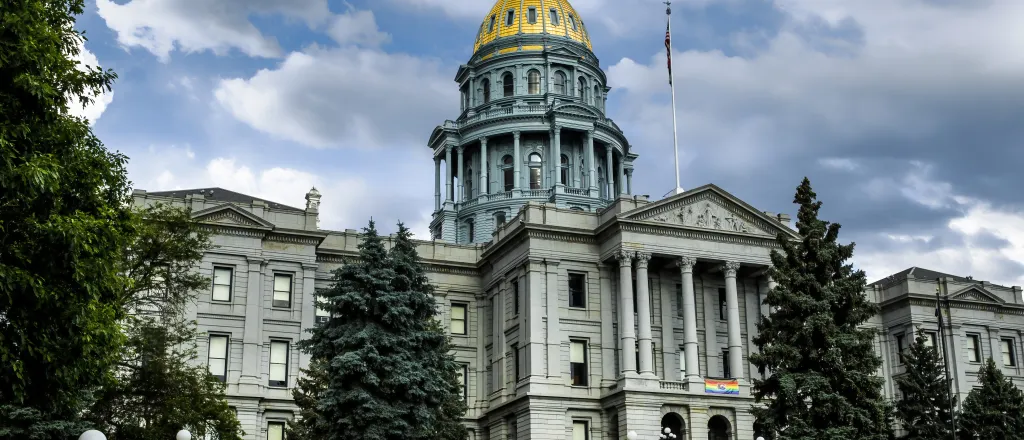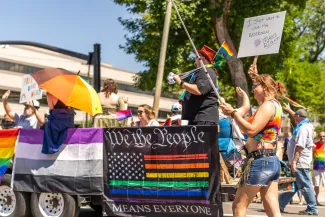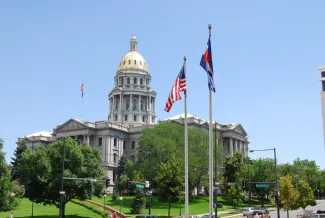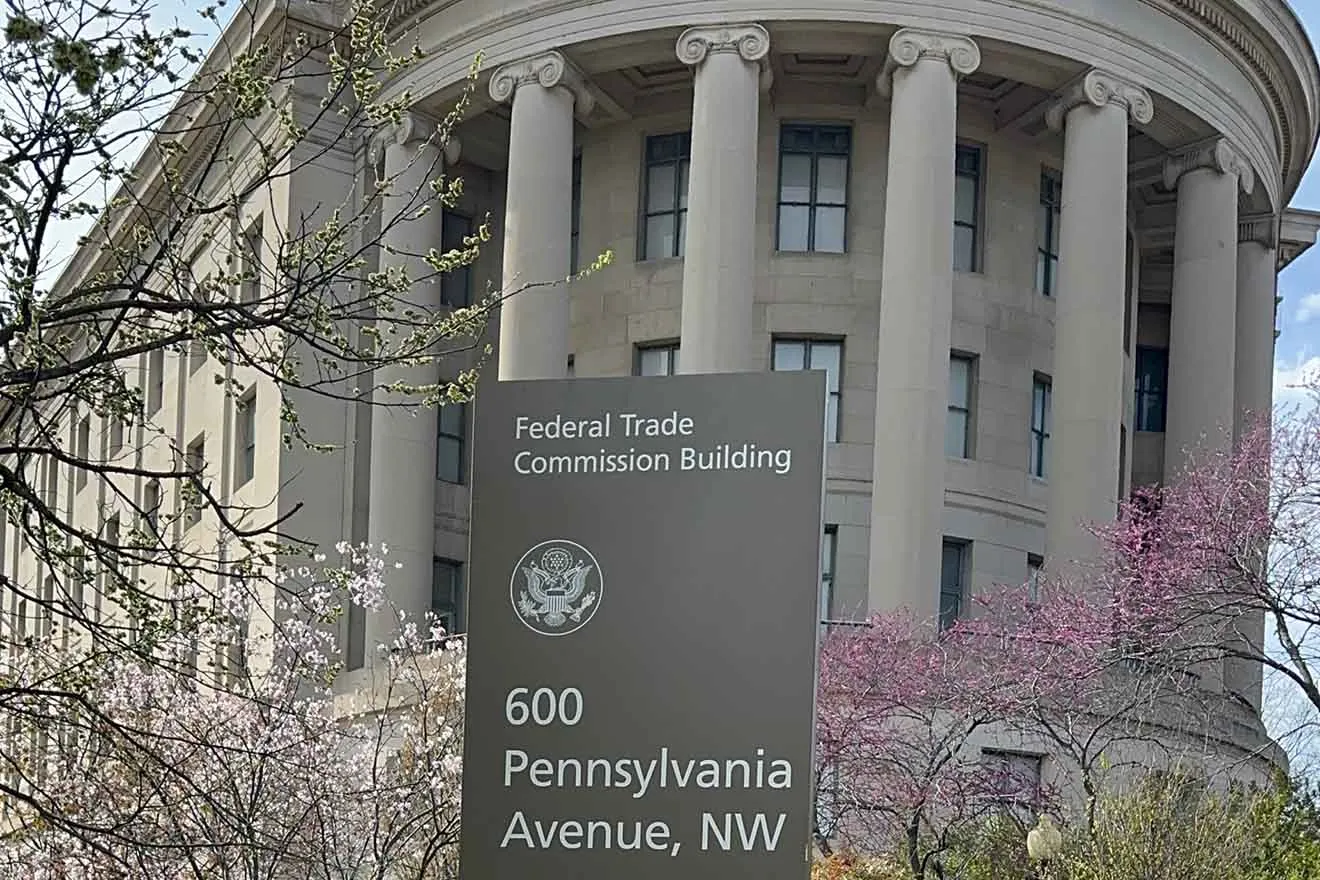
Colorado bill on transgender protections advances with stripped down provisions
© fotoguy22 - iStock-1468912796.jpg
An amended version of a bill that intends to add legal protections for transgender people in Colorado passed its first vote in the Colorado Senate after eight hours of testimony in the Senate Judiciary Committee Wednesday evening into early Thursday.
House Bill 25-1312, dubbed the Kelly Loving Act in honor of a transgender woman killed during the 2022 Club Q shooting in Colorado Springs, initially proposed various new legal protections for transgender people in education, family legal matters and public accommodation. Sponsors amended out a provision that concerned child custody decisions — which drew intense opposition from parental advocates — and a stripped down version of the bill passed the committee.

© Syd White - Syd White - iStock-1497769322
The bill defines deadnaming — when someone calls a transgender person by their previous name — and misgendering as discriminatory acts in the Colorado Anti-Discrimination Act. It would also shield parents who help their child obtain gender-affirming care from laws in other states that outlaw the practice. The amended version removed references to “chosen” names in a section requiring school policies be “inclusive of all reasons” that a student changes their name, and it removed language around gender in the section that says schools must allow students to choose from any variation contained in dress code policies.
The committee removed a section of the bill that would have made judges in child custody cases consider deadnaming, misgendering or threatening to publish information related to an individual or child’s gender-affirming care as a form of “coercive control” in custody proceedings. Much of the testimony against the bill focused on that section, with many witnesses sharing concerns about the government involving itself in family matters. Senator Dylan Roberts, a Frisco Democrat on the committee, said 95 percent to 99 percent of the concerns he heard related to the cut section.
“If Section 2 were still in the bill, I would have been opposed. I think it was an intrusion into the parent-child relationship that would have had some negative consequences,” Roberts said. “And while I understand the intent maybe of the original inclusion, I think the policy implications were challenging at best.”
The committee voted 5-2 to move the bill forward along party lines, with Democrats in support and Republicans against it. Some committee members who voted in support of the bill said they still want to see more changes to reflect concerns from certain LGBTQ+ groups and around the shield law provision of the bill, but they said the amended version was better than how the bill started.
“I think they’re bringing up some valid legal concerns, not questioning their support for trans Coloradans,” Roberts said. “ I think they’re bringing up valid legal concerns about the firmness of what’s on the paper here if it were to get challenged all the way up to the U.S. Supreme Court.”
Hundreds testify
One Colorado, one of the largest LGBTQ+ advocacy groups in Colorado, initially supported the legislation but has changed course and has since taken an “amend” position on the bill with concerns that it could jeopardize current protections. After it passed the House with Democratic support, it stalled in the Senate as stakeholder conversations continued. One Colorado has not shared any details on what it wants to see change in the bill, and nobody with the organization testified at the bill hearing.
“One Colorado is not testifying today because we want to continue our work with the proponents of this bill and community to make it stronger,” One Colorado spokesperson Cal Solverson said in a statement.
Legislative staff said 726 people signed up to testify on the measure. Committee leadership limited debate to eight hours, four in favor of the bill and four against the bill, and asked those still in the room after witness testimony ended to stand to show if they were for, against, or seeking amendments on the bill.

Does this bill do enough? No, and honestly legislation never will, but it does something ... It gives trans folks harmed across the state more access to legal protections than we have today.
Those in support of the bill said it will save transgender peoples’ lives and make them safer.
Anaya Robinson, senior policy strategist with the American Civil Liberties Union of Colorado, said his organization has had concerns with how the bill could be challenged at the federal level, but continued engagement with bill sponsors and stakeholders have led to changes addressing concerns as they come up. As a trans man, Robinson said his community needs “robust and clear protections that do not rely on federal law,” and the bill is a step in the right direction.
“Does this bill do enough? No, and honestly legislation never will, but it does something,” Robinson said. “It gives trans folks harmed across the state more access to legal protections than we have today, and in a time where our literal existence is being questioned, our history being erased, the legality of our bodies and our autonomy is being decided by people who do not believe we have a right to live, we need our elected officials and our community organizations to step up and do something.”
Since President Donald Trump took office in January, his administration has issued orders to recognize only two unchangeable genders, stop offering non-binary passport gender markers, and attempted to stop funding care for transgender people under age 19.
Sybil Vane, a transgender woman from Brighton, described herself as an ordinary person who has led “a typical American life,” and she said “none of that has changed since I transitioned.” She said despite this, transgender people are not afforded the same respect as others.
“I hope that the members of the committee and all those in opposition to the Kelly Loving Act can see me not as transgender, but as a fellow American, deserving the same dignity we afford to all,” Vane said. “Until such a day comes when we can see each other as humans first and transgender second, we need the Kelly Loving Act.”
The bill is sponsored by Representative Lorena García, an Adams County Democrat, Representative Rebekah Stewart, a Lakewood Democrat, Senator Faith Winter, a Westminster Democrat, and Senator Chris Kolker, a Littleton Democrat.
First Amendment objections
The committee voted to strike a portion of the bill that said Colorado courts “shall not give any force or effect” to laws in other states connected to taking children away from parents or caregivers who allowed the child access to gender-affirming care. Winter said that change reflects concerns around the Constitution’s full faith and credit clause and respecting laws of other states. But the shield provision retains other language that protects people in Colorado from other states’ gender-affirming care restrictions.
The amendment also clarified how a court should consider intentional, persistent deadnaming or misgendering as evidence of someone discriminating based on gender identity or expression, and it removed a provision around deadnaming and misgendering in a place of public accommodation.

“The language around this is not if you call someone the wrong name by accident,” Winter said. “This isn’t if someone shows up at your workplace and you call them the wrong name or misgender them. There has to be intentionality to cause harm, and so this is about the action to the individual and not just speech.”
New additions to the bill include a provision that says someone does not need a court order if they want to change their gender marker on the driver’s license or identification a second or third time. Winter said Colorado allows an “X” gender marker on state IDs, but that has led to some people having trouble with student loans and passport applications, so some people may want to change their gender markers back.
The bill now makes it so that a county clerk can issue a new marriage license to someone who has legally changed their name.
Many who testified against the bill showed skepticism of gender-affirming care and denied that people can be transgender. Others questioned whether provisions of the bill would constitute compelled speech and violate the First Amendment.
Wayne Williams, a former Republican secretary of state and attorney in Colorado Springs, expressed concerns with the shield law provisions of the bill and said it can create a “coercive” situation if states “do not give authority to the laws of others.”
“There are a number of issues remaining in the bill that need to be fixed before it could be passed, and it should therefore be killed,” Williams said.
Senator John Carson, a Highlands Ranch Republican on the committee, said “it’s pretty clear” that Colorado already has the laws it needs to prohibit discrimination.
“Colorado Anti-Discrimination Act prohibits discrimination in employment, housing, public accommodations, extending protections beyond federal law, protects individuals from discrimination based on disability, race, creed, color, sex, sexual orientation, gender identity, gender expression, marital status, religion, age, national origin and ancestry,” Carson said. “My belief is when we have adequate laws, we should focus on enforcing those.”
The bill will go through the Senate Appropriations Committee before it will be up for debate on the Senate floor. The House will have to approve Senate amendments to the bill before it could be signed into law.
Democrats control strong majorities in both chambers of the Legislature.
The 2025 legislative session ends on May 7.
















